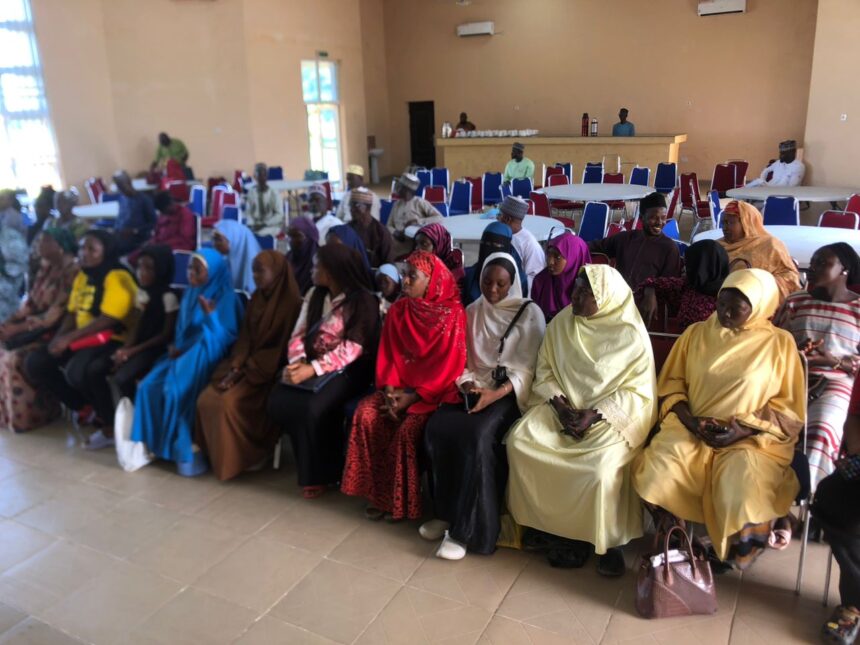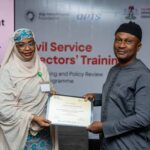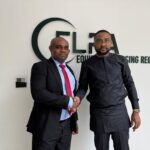The National Commission for Mass Literacy, Adult and Non-Formal Education (NMEC) has called for the use of the mother tongue in the Non-Formal Education Sector across the country.
The position was unveiled at a Stakeholders Engagement in Kano in commemoration of the 2024 International Literacy Day.
The acting Executive Secretary of the Commission, Dr John Onimisi Edeh, who added that the greater the reliance on international languages of wider communication, the lower the expected achievement and the poorer the return on investment.
Edeh said Nigeria would make more meaningful strides in improving adult literacy delivery by prioritising the role of language in the non-formal educational sub sector.
“Nigeria stands unique in the global community. We are one of the few nations where the majority of children begin their educational journey in a foreign language.
“Yet, we are home to one of the richest linguistic tapestries in the world, with over 500 distinct languages spoken across our communities,” he said.
Edeh said the Non-Formal Education sector has two prevailing assumptions in literacy delivery within multilingual settings, namely that instruction should be in the mother tongue for Basic Literacy Level and in a second or foreign language for Post Literacy Level.
“Adult literacy rates remain low, especially in rural and conflict-affected areas.
” Many non-formal education programmes still rely on dominant languages, leaving learners behind, and in some places, indigenous languages are fading, not because they lack value, but because they lack support.
” But here’s the truth when we teach people in the language they understand best, we don’t just teach them to read, we teach them to believe in themselves”.
He said the Commission is channelling its energy in addressing the gaps especially in updating culturally and linguistically relevant materials, engagement of local authors, training facilitators with language competence as a core criterion, and creation of robust mechanisms for feedback and evaluation.
In spite the challenges, Edeh said the Commission had recorded some bright spots including the establishment of Community Learning Centres in 15 states of Oyo, Ekiti, Rivers, Edo, Akwa-Ibom, Cross-River, Katsina, Zamfara, Jigawa, Borno, Bauchi, Taraba, Kwara, Imo and Abia as well as the Federal Capital Territory, using mother-tongue instruction with great success.
He also listed their bright spots to include the implementation of Radio programmes in Hausa, Yoruba, Igbo, and Kanuri which he said are reaching adults and youth in places where formal education cannot as well as the development of more multilingual materials such as Follow-up reading materials and posters
He said the journey toward a literate Nigeria is not just about expanding access, it is about deepening relevance.
“Language is not a mere tool of instruction; it is the heartbeat of identity, comprehension, and empowerment.
” If we are truly committed to inclusive development, we must embrace the linguistic diversity that defines us and use it as a lever for transformation.
“The challenges are real, but so are the opportunities. From community learning centres to radio outreach, from multilingual materials to culturally aware facilitators, we are gradually witnessing the seeds of progress, let us move forward with boldness and clarity.
“Let us invest in what works. Let us teach our people not only how to read, but how to thrive in the language they understand best.
“Together, we can build a future where literacy is not a privilege for the few, but a right for all”.
Earlier, in his welcome address, the Commission’s Acting Director, Network Partnership and Mobilisation, Dr Williams Babajide, said though the summit was taking place later than planned, its significance as the key agency in literacy delivery in the Non-Formal Education (NFE) remains relevant as the global event highlights a key opportunity often used to underscore the importance of literacy to individuals, communities and societies and the nation at large.
Babajide said the theme of the summit; “Literacy without Borders; Multi-Lingual Education as a Tool for Empowering Adults and youths and fostering Peace” aligns with the Commission’s Vision and President Bola Tinubu’s mantra that no child or youth should be left behind.
“We are gathered here to exchange ideas, share experiences, and discuss actionable-strategies that will reinforce our youth and adult literacy system’s capacity to deliver quality literacy services to every Nigerian Youth and Adult, no matter what languages they speak, their various ethnicities or where they choose to reside.
” Our discussions today will focus on the practical steps to adopt and address the challenges in our youth and adult literacy trajectory; beginning with feasible strategies to eliminate all tangible or imagined borders; including the art of exploring multi-lingual education as a fulcrum for education and as a vital tool for empowerment of youths and adults”, Babajide said.











